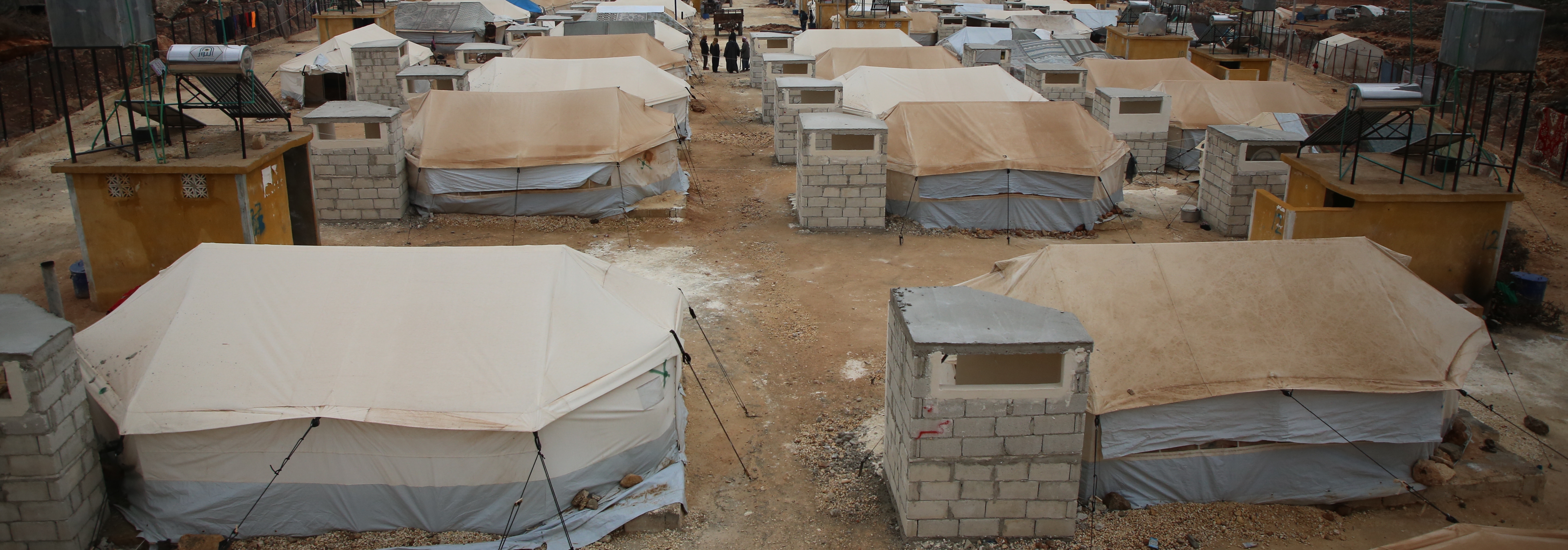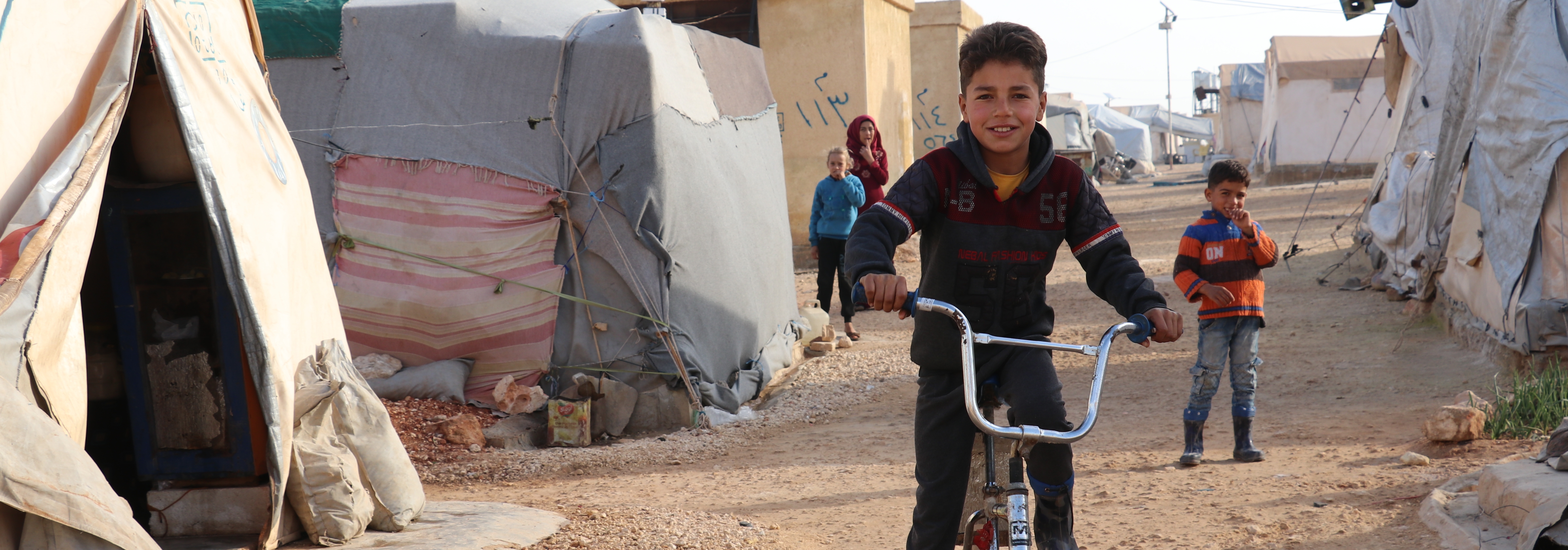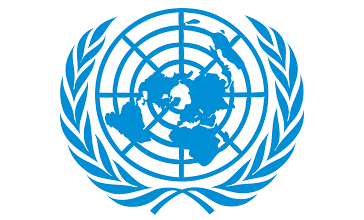IOM Vision
Building on IOM's expertise in providing life-saving assistance to those most affected by conflict, and recognizing the dynamic context within Syria, IOM will address humanitarian and protection needs and support efforts towards resolving displacement. IOM mainstreams protection, accountability to affected populations, protection from sexual exploitation and abuse (PSEA) and risk mitigation throughout all its interventions while working closely with and strengthening the capacity of NGO partners.
Objective
Saving lives and protecting people on the move
Internally displaced persons (IDPs) and affected communities in NWS will be selected based on assessed vulnerabilities. Vulnerability criteria will ensure that assistance reaches individuals and households with the greatest needs, including newly displaced, female- and child-headed households, and persons living with disabilities. Planning, prioritization and targeting will be based on the Humanitarian Needs Overview, and the sectoral severity ranking. IOM will also target partner NGO partner organizations will capacity building support. This is to ensure quality and accountability of services and to empower local entities with the tools for long-term success.
|
In order to meet the shelter needs of affected populations in NWS, IOM will:
|
|
As part of IOM's Camp Coordination and Camp Management activities in NWS, IOM will:
|
|
In order to address the WASH needs of affected populations in Syria, IOM will:
|
|
In order to address the significant protection needs of affected populations in Syria, IOM will:
|
|
In order to support the health needs of affected populations in Syria and reduce the spread of COVID-19 in supported displacement sites, IOM will:
|
|
In order to address the immediate food needs of affected populations in Syria, IOM will:
|
|
In order to support the MHPSS needs of affected populations in Syria, IOM will:
|

Objective
Driving solutions to displacement
Internally displaced persons and affected communities in Syria will be selected based on assessed vulnerabilities. Vulnerability criteria will ensure that assistance reaches individuals and households with particular vulnerabilities, including newly displaced, female- and child-headed households, and persons living with disabilities. Planning, prioritization and targeting will be based on the Humanitarian Needs Overview, and the sectoral and inter-sectoral severity ranking.
|
In order to promote durable solutions for affected populations in Syria and in line with IOM's Progressive Resolution of Displacement Situations Framework (PRDS), IOM will:
|
Objective
Contribute to an evidence-based and efficient crisis response system
|
Humanitarian actors participating in the inter-agency Protection from Sexual Exploitation and Abuse (PSEA) Networks in all hubs for joint implementation of international PSEA commitments, as well as those contributing to the protection of civilians, the reduction of suffering and to building the resilience of affected populations throughout the Syria response will benefit from the provision of technical and operational information management support. |
IOM will continue to host the WoS PSEA program and support the interagency humanitarian response in joint implementation of PSEA commitments. Through an established, robust interagency PSEA Network, IOM will continue to support the inter-agency partnership to decrease the risk of crisis‐affected communities experiencing incidents of SEA by humanitarian workers and provide technical and operational support to humanitarian actors to prevent, prepare for, and respond to SEA cases. IOM will also continue to support the interagency response with information management services. Activities will include:
- Humanitarian information management and reporting on behalf of the interagency response.
- Coordination between the interagency PSEA Networks in all hubs, as well as between PSEA Networks and GBV actors to ensure a survivor-centred approach and systematic referrals to available services;
- Building the capacity of humanitarian workers and other stakeholders on PSEA, including investigatory capacity building;
- Raising awareness of and consulting with affected populations;
- Supporting implementation of risk and mitigation measures;
- Integrating and mainstreaming PSEA into the broader humanitarian infrastructure and linking to existing referral pathways;
- Establishing inter-agency community-based complaints mechanisms (CBCMs).
|
Syrian Arab Republic
The map used here is for illustration purposes only. Names and boundaries do not imply official endorsement or acceptance by IOM.
Figures are as of 31 December 2023. For more details of IOM's operational capacity in country, please see the IOM Capacity section.














